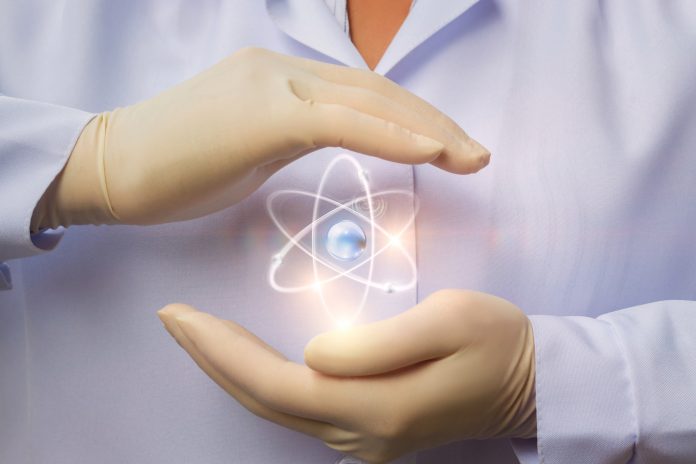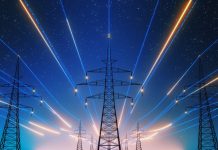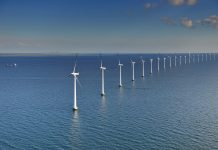Professor Anthony J. Evans from ESCP Business School discusses why nuclear energy is a potentially safer and cheaper alternative to fossil fuel
As countries across the globe struggle to balance their desire for a reliable energy supply with their contribution to climate change, nuclear power presents a solution.
The global reliance on fossil fuels is a function of our energy needs, and although there have been numerous initiatives implemented in order to reduce demand, such as levying large taxes on air transport, appropriate sources of supply still need to be defined.
Fossil fuels such as coal, oil and gas have the benefit of being capable of servicing our energy needs. However, they are a chief contributor to climate change, and as countries attempt to meet the Paris Agreement of keeping global temperature below 2o above pre-industrial levels, non-carbon energy sources are essential.
Positives and negatives
So, what are the pros and cons of nuclear power as a safer, cheaper alternative to fossil fuels? Well, where renewable sources such as wind or solar are clean, they are also intermittent, require an uneven geographical distribution, and are prohibitively expensive to fully replace the carbon pollutants. On the other hand, nuclear energy is a much more reliable power generation source. Unlike solar and wind energy, which need the sun to be shining or the wind to be blowing, nuclear power can be generated at any time throughout the day. This means that a nuclear power plant can produce energy nonstop, and you won’t have to experience any delays in energy production.
Yet nuclear energy doesn’t solve the issue of sustainability, because there is only a finite number of nuclear materials on earth. This is because energy produced by nuclear reactors is internal to the entire global system and consequently suffers from similar issues regarding the production of harmful by-products. Therefore, an emphasis on sustainability, rather than renewability, is an argument in favour of nuclear provision.
With this in mind, switching from unsustainable to fully renewable energy quickly is immensely costly and unnecessary. Instead, making energy usage more sustainable is an alternative, realistic strategy. Nuclear power is much more sustainable than fossil fuels, and much more reliable than renewable energy sources such as wind or solar.
Therefore, the waste products produced by nuclear energy may well be a price worth paying for a realistic means to meet climate change targets. The greater the concern about climate change, the more willing we must be to store nuclear waste – especially with technological advances dramatically reducing the storage costs in recent years.
So, if nuclear plants supply steady, low-carbon energy—a valuable commodity in a world confronting climate change- why has nuclear power’s role been diminishing for two decades? Indeed, after the first nuclear power plant was built in 1956, steady growth saw the number exceed 100 in 1973, 200 in 1978, 300 in 1984, 400 in 1987, but it has since remained under 450.
One reason is that there are significant public concerns over nuclear power and its safety, especially following notable accidents that occurred at Three Mile Island and Chernobyl. As a result, commercial nuclear power is sometimes viewed by the general public as a dangerous or unstable process. However, these could be a reflection of ignorance, rather than underlying danger. For example, Americans that live closer to nuclear power stations are more likely to have a favourable opinion of the nuclear industry. This may well reflect a greater financial reliance, such as the families of people who earn their livelihood from nuclear power, but also demonstrates that when people understand the benefits, they are much more willing to educate themselves on the risks.
As well as public concern, another constraint when it comes to nuclear energy becoming more widespread is indeed initial construction cost, coordination, and organisation. Building a nuclear power plant can be discouraging for stakeholders due to the high capital costs and lengthy licensing and regulation approvals. However, I believe that if governments take a lead on such projects, given that the places where nuclear power has thrived have been where governments have taken an active role in large-scale deployment programmes, there is potential for more widespread implementation. As such, dramatic growth potential is available for countries that find a way to integrate nuclear power in their existing energy strategy.
There are many benefits to nuclear energy, and it has been proven that nuclear power is a safer, cheaper alternative to fossil fuels. Nuclear power reactors do not produce any carbon emissions, and this is a huge advantage over traditional sources of energy, like fossil fuels, which releases tons of carbon dioxide into the atmosphere. On top of this, although nuclear power stations take considerable investment to build, they have low running costs and longevity – meaning they are particularly cost-effective in the long-term. Despite considerable public apprehension, and the financial and regulatory preventions, nuclear power is an essential part of the solution to the climate emergency.












I disagree that nuclear is a cost effective alternative. With more than 250,000 metric tonnes of high level radioactive residue stored in “temporary” sites worldwide, 90,000 metric tonnes in the United States (the quantity of mid and low level is “indeterminate”) and no realistic solution for disposal, a real world cost of these products is not considered and is cumulative. I have not found any mention of these costs in any of my research.
Most plants sites store their waste by having it mixed in with carbon and concrete, sealed in a cement case that’s a meter thick, then lowered underground several meters down, which is filled in with more cement. The level of risk of a spill or leak is near-zero. Its hundreds of times safer than riding on an airplane, and thousands of times safer than coal mine extractions. The cost (relative to energy created) is almost identical of the two energy sources yearly, but the ecological safety and the safety of other people is vastly different. Nuclear energy has no reasonable argument against it at this point in human advancement.
Arthur’s right lol.